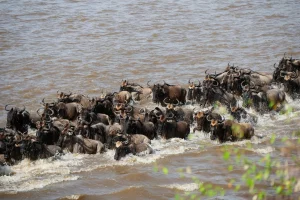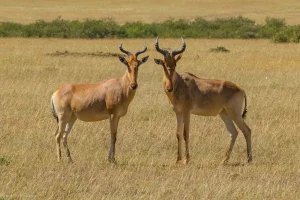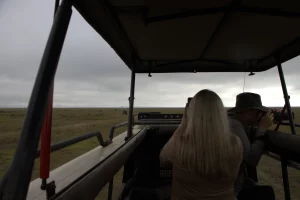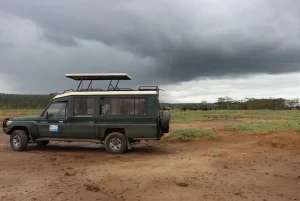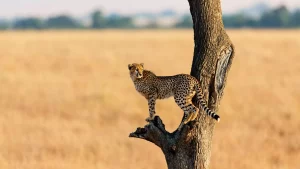The Best Time to Visit Masai Mara National Reserve | Month-by-Month Guide
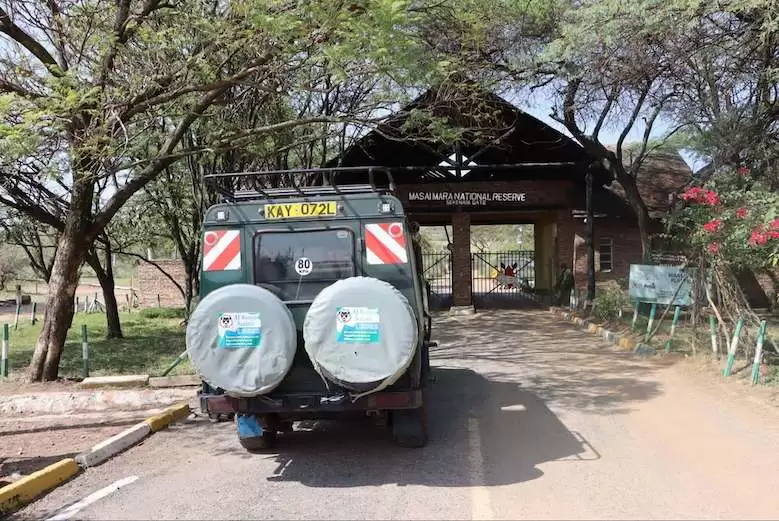
The Masai Mara is one of the most popular tourist destinations in Africa, and for good reason. The vast national reserve offers up stunning landscapes and a wealth of wildlife to view, including the Big Five. But when is the best time to visit Masai Mara? What are the pros and cons of each month?
In this article, we’ll take a look at the ideal time to visit the Masai Mara according to month, based on what you’re hoping to see and experience during your safari.
How To Book Your Masai Mara National Reserve Safari and Other Packages
Before we give you the monthly guide to visiting Masai Mara, here are our contact details you can use to book your safari. Reach us via phone or WhatsApp at +254-748-258-880. Email us at james@ajkenyasfaris.com or safarioffers@ajkenyasafaris.com or fill in our online form.
Our Most Booked Masai Mara Safari Packages and Other Tours
| The Best Masai Mara Safari PackagesDetailed ItineraryPrice Per Person Sharing | ||
|---|---|---|
| 3-Day African Safari in Kenya | View the Itinerary | From USD 880 |
| 3-Day Masai Mara Budget Safari | View the Itinerary | From USD 880 |
| 4-Day Ashnil Mara Camp Safari | View the Itinerary | From USD 1190 |
| 4-Day Lake Nakuru & Masai Mara Safari | View the Itinerary | From USD 1180 |
| 4-Day Mara Serena Safari Lodge Trip | View the Itinerary | From USD 1262 |
| 4-Day Masai Mara Flying Safari | View the Itinerary | From USD 1450 |
| 4-Day Masai Mara Group Safari | View the Itinerary | From USD 750 |
| 4-Day Masai Mara Migration Safari | View the Itinerary | From USD 1430 |
| 5-Day Naivasha & Masai Mara Group Safari | View the Itinerary | From USD 854 |
| 6-Day Amboseli, L. Naivasha, & Masai Mara Safari | View the Itinerary | From USD 1764 |
| 6-Day Amboseli, L. Nakuru, & Masai Mara Group Safari | View the Itinerary | From USD 1186 |
| 6-Day Hell’s Gate, L. Nakuru, & Masai Mara Safari | View the Itinerary | From USD 1788 |
| 6-Day L. Nakuru, Hell’s Gate, & Masai Mara Group Safari | View the Itinerary | From USD 1123 |
| 6-Day Nairobi & Masai Mara Family Safari | View the Itinerary | Adult From USD 2000 Child From USD 628 |
| 6-Day Nairobi, L. Nakuru, & Masai Mara Safari | View the Itinerary | From USD 1795 |
| 7-Day Amboseli, Naivasha, & Masai Mara Group Safari | View the Itinerary | From USD 1130 |
| 13-Day Kenya Wildlife & Beach Safari | View the Itinerary | From USD 5258 |
Best Time to Visit Masai Mara: Month-by-Month Guide
If you’re looking to go on a safari in Masai Mara, it is important to know when it is the ideal time to come. In this section, we’ll take a look at the best time to visit Masai Mara according to month, based on what you’re hoping to see and experience during your safari.
Visiting Maasai Mara in January & February
January and February are the perfect time to visit, as the weather is dry and cool. This is the best time for a safari, as you will have excellent visibility and plenty of opportunities to spot the incredible wildlife that calls the reserve home, including majestic lions, awe-inspiring elephants, and graceful giraffes.
Visiting the Reserve in March & April
If you are looking to avoid the crowds and experience the park at its most beautiful, then March and April are ideal months to come. The weather in the reserve is still mild and comfortable, & the grasslands are lush with greenery because of the long rains. This makes it a great time for spotting wildlife in their natural habitat, including zebras, gazelles, and antelopes.
Visiting Masai Mara in May & June
May and June are wonderful months to visit Masai Mara, as the weather is warm during the day with cooler evenings. This creates perfect conditions for viewing wildlife at dusk and dawn when many animals are most active, including hippos, buffalo, cheetahs, and hyenas. May will see the end of the long rains in the reserve and the start of the dry season from June to October.
Visiting Maasai Mara in July & August
July and August are especially spectacular months to visit, as this is when the Great Migration takes place. Over 1.5 million wildebeest, zebra, and antelope make the journey from the Serengeti to Maasai Mara in search of greener pastures. The Great Migration is an epic spectacle and one that is best experienced in person, thus the need to come to Masai Mara.
Another highlight of a visit to Maasai Mara during July and August is the river crossing. As the animals make their way across the Mara River, they are easy prey for predators like crocodiles and lions in the Masai Mara.
Visiting the Reserve in September & October
Visitors to the Masai Mara during this time of year can expect to see an incredible variety of wildlife, including lions, cheetahs, and elephants. The migrating herd is now settled in the Masai Mara, with the wildebeest migration extending from July to October. September to October is truly a once-in-a-lifetime chance to see the wildebeest grazing in the reserve. October will also see the end of the dry season and the start of the short rains.
Visiting Maasai Mara in November & December
November and December is a great time to come to the reserve since they are quiet months. This is when you can enjoy Mara’s lush green vegetation, which is at its peak during this time of year. The wildlife viewing may not be as spectacular as during the migration, but you’ll still have a good chance of seeing elephants, lions, and other big cats. And with far fewer tourists around, you’ll be able to appreciate the true beauty of this African wilderness. December will see the end of the short rains and the start of the long dry season until March.
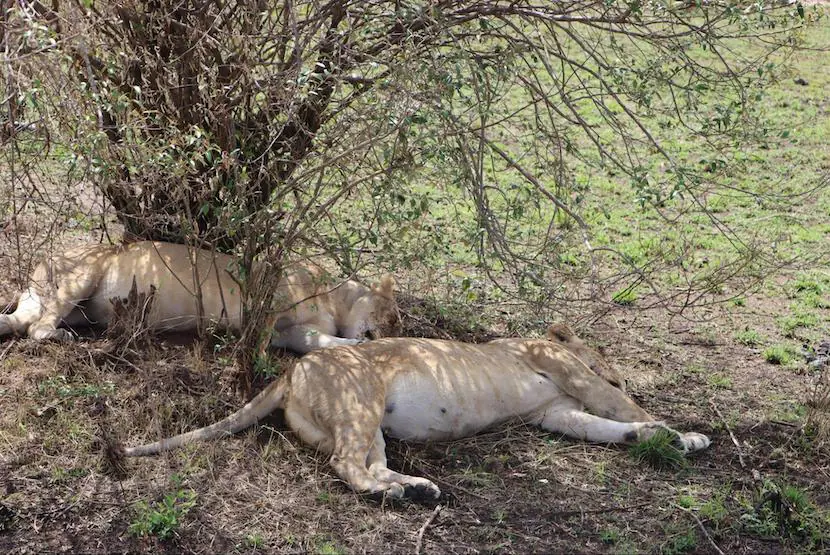
Low, High, & Peak Season in the Masai Mara National Reserve
There are three seasons of the year in the mara – the high season, the low season, and the peak season. Each has its own advantages and disadvantages, so it’s important to know which one is right for you before you go to Kenya.
Low Season – Green Season
April, May, and June are typically considered the “low season” of the year for tourist travel to Masai Mara. As a result, travel prices are often lower this time of the year. Although the weather may not be perfect, you’ll often find that hotels and tourist attractions are less crowded. This’s the perfect time for a budget traveler to go to the reserve.
High Season
January, February, March, November, and December are high seasons in Masai Mara. The reasons are the weather and the animals. The weather is cool and dry during these months, making it comfortable to explore the reserve. January, February, and December will generally be the dry season.
Peak Season / Migration Season
Peak season falls between July and October, during the Great Migration. This is when over two million wildebeest, zebra, and antelope travel from the Serengeti in Tanzania to the greener pastures of the Masai Mara.
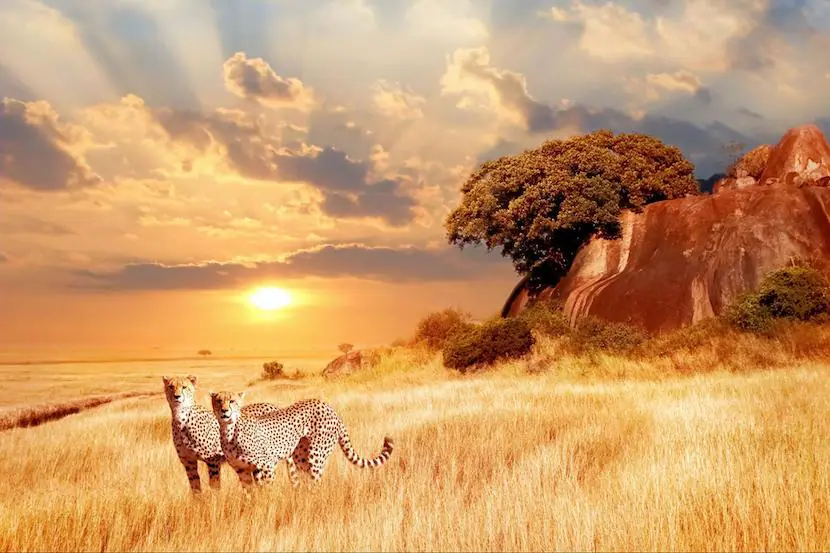
FAQs on the Best Time to Come to Masai Mara
Below are some of the most commonly asked questions about when is the right time to travel to Masai Mara.
1. Which months are ideal for catching the Great Migration?
The best time to visit Masai Mara for catching the Great Migration is typically between July and October. It is a great time for this world’s wonder.
2. Which are the best months for catching the River Crossing?
If you’re wondering when to see the river crossing, organize your safari in July or early August. The reserve is about to see an increase in activity this time of the year.
3. Which are the best months for avoiding the crows at the Reserve?
If you want to enjoy some peace and quiet while exploring Masai Mara, the best months to avoid crowds are April, May, and June.
4. Which months are ideal for birdwatching at the Reserve?
If you’re looking to see a variety of birds and other wildlife in the reserve, consider visiting the park during the months of December through April. Migratory birds are typically present in the reserve.


